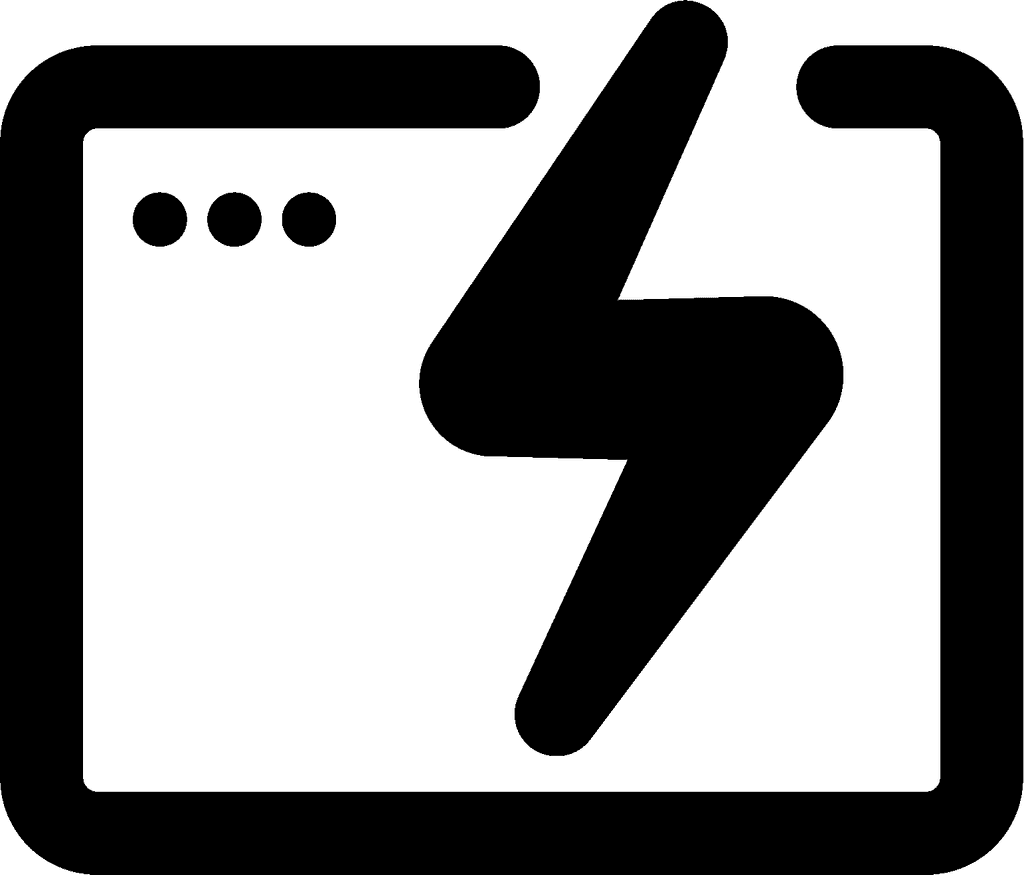AI in Operations: Revolutionizing Efficiency in Modern Business Processes
Artificial intelligence is transforming business operations across industries. AI-powered systems analyze vast datasets, automate routine tasks, and provide data-driven insights to optimize workflows and decision-making. Companies leveraging AI in operations can achieve significant efficiency gains, cost reductions, and competitive advantages.
From predictive maintenance in manufacturing to inventory optimization in retail, AI applications are revolutionizing how organizations manage their processes and resources. Machine learning algorithms detect patterns and anomalies that humans might miss, enabling proactive problem-solving and continuous improvement.
As AI technology advances, its integration into operations will likely accelerate. Forward-thinking businesses are exploring ways to harness AI's potential while addressing challenges like data quality, algorithmic bias, and workforce adaptation. Those who successfully implement AI-driven operational strategies stand to reap substantial rewards in productivity and innovation.

Evolution of AI in IT Operations
Artificial intelligence has transformed IT operations over the past decade, moving from basic automation to sophisticated AIOps platforms. This shift has enabled more efficient, proactive, and intelligent management of complex IT environments.
From Automation to AIOps
IT operations initially focused on automating repetitive tasks to improve efficiency. Simple scripts and tools helped manage routine processes. As technologies advanced, more complex automation frameworks emerged.
The rise of machine learning and AI led to the development of AIOps (Artificial Intelligence for IT Operations). AIOps platforms use AI algorithms to analyze large volumes of data from various IT sources.
These systems can detect patterns, identify anomalies, and predict potential issues before they impact business operations. AIOps tools provide real-time insights and recommendations, enabling IT teams to respond faster to incidents.
Digital Transformation and IT Operations
Digital transformation has reshaped IT operations' role within organizations. As businesses increasingly rely on technology, IT teams must support more complex, distributed environments.
AI-powered tools help manage this complexity by:
Providing predictive maintenance
Optimizing resource allocation
Enhancing security monitoring
These capabilities allow IT teams to focus on strategic initiatives rather than day-to-day troubleshooting. AI also enables more agile and responsive IT operations, supporting rapid innovation and deployment of new services.
Gartner's View on AIOps Evolution
Gartner, a leading research firm, has tracked the evolution of AIOps and its impact on IT operations. They define AIOps as the application of machine learning and data science to IT operations problems.
Gartner predicts that by 2023, 30% of large enterprises will be using AIOps platforms for automated anomaly detection. They highlight several key trends in AIOps evolution:
Integration with DevOps practices
Enhanced natural language processing capabilities
Improved root cause analysis
Greater focus on business outcomes
Gartner emphasizes the importance of selecting AIOps tools that align with specific organizational needs and existing IT infrastructure.
Key Components of AIOps Platform
AIOps platforms integrate several advanced technologies to optimize IT operations. These systems leverage data analytics, machine learning, and automation to enhance efficiency and decision-making.
Real-Time Analytics
Real-time analytics forms the backbone of AIOps platforms. These systems continuously collect and process vast amounts of data from various IT infrastructure components. They monitor network traffic, server performance, application logs, and user activities.
AIOps platforms use streaming analytics to detect anomalies and issues as they occur. This allows IT teams to respond quickly to potential problems before they escalate. Real-time dashboards provide visibility into system health and performance metrics.
Advanced AIOps solutions can correlate events across different systems to identify root causes of issues. This capability reduces mean time to resolution and improves overall system reliability.
Machine Learning and Predictive Analytics
Machine learning algorithms power the predictive capabilities of AIOps platforms. These systems analyze historical data to identify patterns and trends. They can forecast future resource needs, potential system failures, and performance bottlenecks.
ML models in AIOps platforms often use techniques like:
Clustering for grouping similar events
Classification for categorizing incidents
Regression for predicting future values
Predictive analytics helps IT teams move from reactive to proactive management. It enables capacity planning, preemptive maintenance, and optimized resource allocation.
Service Management Integration
AIOps platforms integrate with existing IT service management (ITSM) tools and processes. This integration streamlines incident management, change management, and problem resolution.
Key features of service management integration include:
Automated ticket creation and routing
Enrichment of incident data with contextual information
Suggestion of relevant knowledge base articles
AIOps platforms can prioritize and categorize incidents based on their potential impact. They often provide collaboration tools to facilitate communication between team members during incident resolution.
AIOps Implementation and Best Practices
Implementing AIOps requires careful planning, collaboration, and attention to security. Organizations must strategically deploy AIOps solutions, foster teamwork between AI and DevOps, and establish robust governance frameworks.
Strategic Planning for Deployment
Successful AIOps implementation begins with a clear roadmap. IT teams should identify specific use cases where AI can drive efficiency gains. Start with small, high-impact projects to demonstrate value quickly.
Assess existing infrastructure and data quality. Clean, structured data is essential for accurate AI insights. Invest in data preparation tools and processes as needed.
Choose AIOps solutions that integrate well with current systems. Consider cloud-based options for scalability and flexibility. Train staff on new tools and AI concepts to ensure smooth adoption.
Set measurable goals for AIOps initiatives. Track key performance indicators like mean time to resolution (MTTR) and false positive rates. Regularly review and adjust strategies based on results.
Enhancing Collaboration with DevOps
AIOps and DevOps work best when tightly integrated. Foster a culture of collaboration between AI specialists and DevOps teams. Encourage knowledge sharing and cross-training.
Implement ChatOps tools to streamline communication. These platforms allow teams to interact with AI systems directly in chat interfaces, speeding up issue resolution.
Use AI to enhance DevOps processes. Automate routine tasks like code reviews and test case generation. Leverage predictive analytics to identify potential deployment issues before they occur.
Create feedback loops between AIOps insights and DevOps practices. Use AI-generated recommendations to continuously improve development and operations workflows.
Governance, Regulation and Security
Establish clear governance policies for AIOps usage. Define roles and responsibilities for AI system management. Create guidelines for data access and model training.
Stay informed about AI regulations in relevant industries and regions. Ensure AIOps implementations comply with data privacy laws like GDPR and CCPA.
Implement robust security measures for AI systems. Use encryption for sensitive data and secure API endpoints. Regularly audit AI models for bias and vulnerabilities.
Develop an ethical framework for AI decision-making. Set boundaries for autonomous actions and human oversight. Create transparent processes for reviewing and challenging AI-generated insights.
Monitor AI system performance and security continuously. Use anomaly detection to identify potential breaches or misuse. Have incident response plans ready for AI-related issues.
The Impact of AIOps on Business Outcomes
AIOps transforms how organizations manage their IT operations, leading to significant improvements in various aspects of business performance. It enhances customer and employee experiences, boosts operational efficiency, and helps mitigate risks through predictive maintenance.
Improving Customer and Employee Experience
AIOps plays a crucial role in enhancing both customer and employee satisfaction. By automating routine tasks and reducing system downtime, it allows IT teams to focus on more strategic initiatives. This shift leads to faster problem resolution and improved service quality.
For customers, AIOps enables quicker response times and more reliable services. It helps identify and resolve issues before they impact users, resulting in a smoother, more consistent experience.
Employees benefit from streamlined workflows and reduced manual work. AIOps tools provide insights that help staff make data-driven decisions, increasing job satisfaction and productivity.
Leveraging AI for Operational Efficiency
AIOps significantly boosts operational efficiency by automating complex IT processes. It analyzes vast amounts of data to identify patterns and anomalies, enabling proactive problem-solving.
Key benefits include:
Reduced mean time to repair (MTTR)
Improved resource allocation
Enhanced capacity planning
Streamlined incident management
AIOps platforms can correlate data from multiple sources, providing a holistic view of IT operations. This comprehensive insight helps organizations optimize their infrastructure and reduce operational costs.
By automating routine tasks, AIOps frees up IT personnel to focus on innovation and strategic projects, driving business growth.
Risk Mitigation and Predictive Maintenance
AIOps excels in risk mitigation through its predictive capabilities. By analyzing historical data and real-time metrics, it can forecast potential issues before they escalate into major problems.
This predictive approach enables:
Early detection of system anomalies
Proactive maintenance scheduling
Reduced unplanned downtime
Improved system reliability
AIOps tools use machine learning algorithms to continuously learn from past incidents, refining their predictive accuracy over time. This ongoing improvement helps organizations stay ahead of potential risks and maintain optimal system performance.
By minimizing unexpected outages and optimizing maintenance schedules, AIOps helps businesses avoid costly disruptions and maintain a competitive edge in the market.
Challenges and Future Directions in AIOps
AIOps faces several hurdles as it evolves to meet the growing demands of modern IT environments. Key areas of focus include managing complex ecosystems, adapting to rapid changes, and driving innovation through research and development.
Addressing the Complexity in IT Ecosystems
IT infrastructures have become increasingly intricate, posing challenges for AIOps implementation. The sheer volume of data generated by diverse systems can overwhelm traditional analysis methods. AIOps must navigate this complex landscape to provide meaningful insights.
Machine learning algorithms need refinement to handle the variety of data sources and formats. Integrating legacy systems with modern cloud-based solutions adds another layer of complexity. AIOps platforms must evolve to seamlessly connect disparate technologies.
Data quality and consistency remain critical issues. Ensuring accurate, timely information across all systems is essential for effective AI-driven operations. Organizations must invest in data governance and standardization efforts to maximize AIOps benefits.
Adopting to Change: The Future of Operations Management
The rapid pace of technological advancement necessitates continuous adaptation in AIOps strategies. IT teams must stay agile to incorporate new tools and methodologies as they emerge.
Generative AI presents both opportunities and challenges for operations management. While it offers potential for automating complex tasks, integrating it safely and effectively requires careful consideration.
Skills gaps in AI and machine learning pose hurdles for many organizations. Upskilling existing staff and attracting new talent will be crucial for successful AIOps adoption. Collaboration between IT and data science teams will become increasingly important.
Research and Development in AIOps
Ongoing research is vital to address current limitations and unlock new possibilities in AIOps. Areas of focus include improving anomaly detection accuracy and reducing false positives in monitoring systems.
Developing more sophisticated predictive models remains a key objective. These models aim to anticipate potential issues before they impact operations, enhancing system reliability and performance.
Explainable AI is another critical research area. As AIOps systems become more complex, ensuring transparency in decision-making processes is essential for building trust and facilitating human oversight.
Innovation in natural language processing could enable more intuitive interactions between IT staff and AIOps platforms. This may lead to improved efficiency in problem resolution and knowledge sharing.
Frequently Asked Questions
AI is revolutionizing operations across industries, enhancing efficiency, safety, and decision-making. It offers solutions for supply chain management, predictive maintenance, quality control, inventory optimization, and more.
How does AI enhance efficiency in supply chain management?
AI optimizes routing and logistics by analyzing real-time data on traffic, weather, and inventory levels. It predicts demand patterns and adjusts supply accordingly, reducing waste and stockouts. AI-powered chatbots handle customer inquiries, freeing up human agents for complex tasks.
What are the benefits of AI for predictive maintenance in manufacturing?
AI analyzes sensor data to detect equipment anomalies before failures occur. This reduces downtime and extends machine lifespans. Predictive maintenance schedules optimize resource allocation and prevent costly emergency repairs.
In what ways can AI improve quality control processes in operations?
Computer vision systems inspect products at high speeds, detecting defects human eyes might miss. Machine learning algorithms analyze production data to identify root causes of quality issues. AI-powered testing simulations catch potential problems early in the design phase.
How is AI transforming inventory management and demand forecasting?
AI algorithms process vast amounts of historical and real-time data to predict future demand accurately. This enables just-in-time inventory practices, reducing carrying costs. AI-powered systems automatically reorder stock when needed, preventing shortages.
What are the applications of AI in enhancing safety in operations?
AI-powered cameras and sensors monitor workspaces for potential hazards. Machine learning models analyze incident reports to identify safety trends. Virtual reality simulations powered by AI provide immersive safety training experiences.
How do AI-powered analytics optimize operational decision-making?
AI processes large datasets to uncover hidden patterns and insights. It provides real-time dashboards with key performance indicators for quick decision-making. Scenario modeling powered by AI helps leaders evaluate potential outcomes of different strategies.

Build a more powerful help desk with Risotto
Minimize Tickets and Maximize Efficiency
Simplify IAM and Strengthen Security
Transform Slack into a help desk for every department
Schedule your free demo



